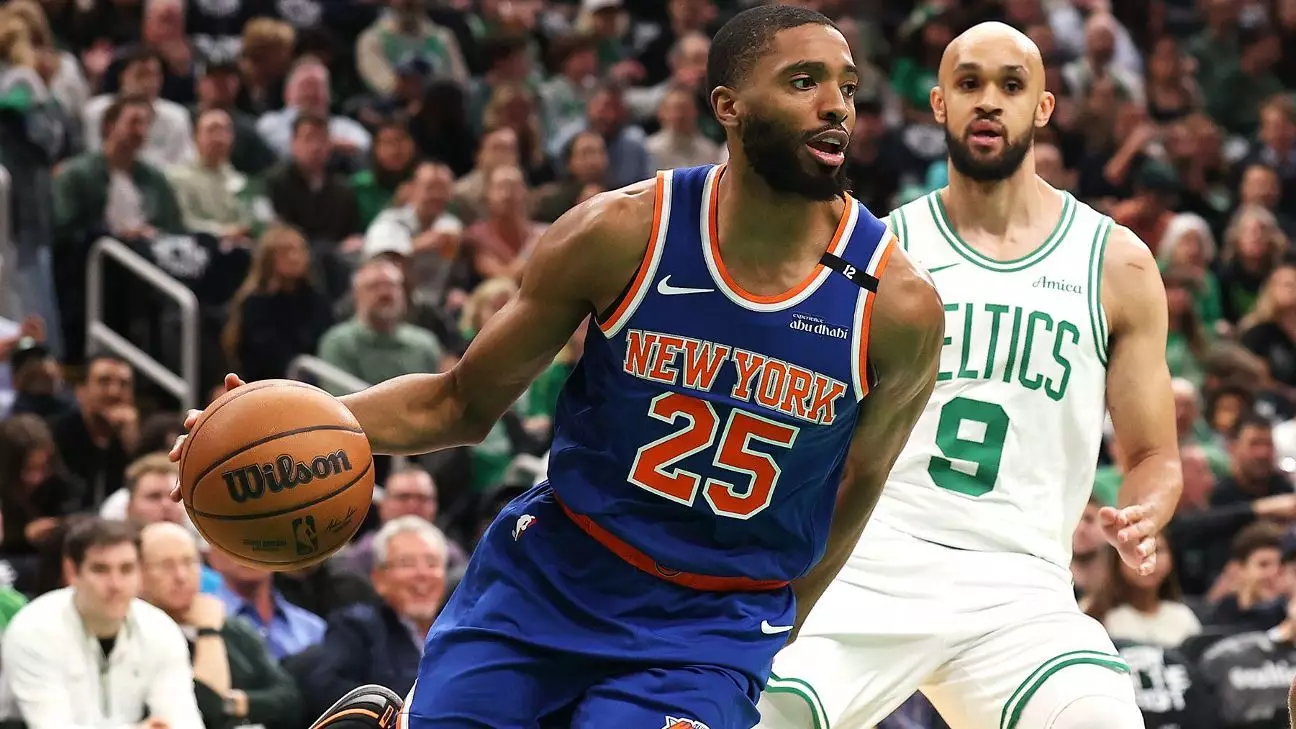The New York Knicks’ recent decision to extend Mikal Bridges’ contract exemplifies a bold strategic shift rooted in both loyalty and foresight. Signing Bridges for four years and $150 million not only secures a pivotal piece in the team’s puzzle but also signals a clear message to the league: the Knicks are serious about competing at the highest level. This move balances immediate competitiveness with long-term flexibility, highlighting their awareness that basketball success doesn’t hinge solely on star power but on sustained roster stability and smart financial planning. By including a player option for 2029-30 and a trade kicker, New York has effectively created a flexible yet firm foundation for future adjustments, reflecting an organization that is both cautious and ambitious.
What stands out most here is the deliberately slight discount Bridges took from the maximum extension he was initially eligible for—a testament to his commitment to the franchise’s future. This isn’t just about paychecks; it’s about shared vision. Bridges’ willingness to accept less underscores his understanding that his role in New York goes beyond raw stats. It’s a belief that his evolving game and leadership can help propel the team to genuine postseason success, not just a fleeting good run. In a league where star power often dominates headlines, this quiet display of buy-in reflects a mature, team-first mindset—a rare quality that could shape the Knicks’ identity for years to come.
From Uncertainty to Confidence: The Path of Resilience and Adaptability
Bridges’ journey with the Knicks illustrates the unpredictable nature of NBA careers and the importance of adaptability. Last season, Bridges faced significant challenges as he transitioned from a role as a primary option on Brooklyn’s rebuilding squad to a more specialized defender, often tasked with guarding the league’s best ball handlers. Such a role adjustment isn’t easy, especially for a player used to being more involved offensively. His midseason struggles, including a decline in free throw attempts and a shift in his on-court responsibilities, painted a picture of a player in the midst of an identity recalibration.
Yet, what distinguishes Bridges is not just his resilience but his ability to contribute meaningfully despite these hurdles. His remarkable efficiency—ranking second in corner three-pointers made and high in midrange field goal percentage—demonstrates an impressive range of skills that often go unnoticed in traditional box scores. Moreover, his clutch performances in the postseason, especially during critical moments against Boston, showcase a mental toughness that the Knicks desperately need. His leadership on defense, coupled with his ability to provide consistent spacing on the floor, makes him an invaluable asset in the team’s pursuit of sustained playoff contention.
However, his candid remark about fatigue—asking the coaching staff to ease up on the heavy minutes—not only humanizes him but also underscores his pragmatic approach. Recognizing physical limits and advocating for team sustainability signals a player who understands that greatness requires self-awareness and collaboration. For the Knicks, embracing this mindset will be essential if they hope to move beyond mere playoff appearances to genuine championship contention.
Vision for the Future: Building a Contender, Not Just a Competitor
The Knicks’ recent moves aren’t just about maintaining status quo—they’re about propelling the franchise into a new echelon. With contracts for Jalen Brunson and Bridges now locked in, the team holds unprecedented financial and strategic flexibility. This allows the front office to target key pieces without the immediate pressure of salary cap constraints, fostering an environment where talent can be added thoughtfully rather than hurriedly.
This development also reflects a broader cultural shift within the franchise. Instead of clinging to past glories or short-term fixes, the Knicks are building a sustainable blueprint that combines smart contracts, player development, and tactical growth. The addition of Bridges—a player admired for his defense, versatility, and steady growth—embodies this philosophy. He’s not an overhyped star but a diamond in the rough, whose game can evolve with the right environment.
The upcoming seasons will be a test of the organization’s patience and identity. Can Bridges develop further offensively? Will the team continue to prioritize a balanced approach that emphasizes both scoring and defense? The answers depend on a forward-thinking mindset, one that sees beyond immediate wins and understands the importance of nurturing a cohesive, resilient squad prepared for a deep postseason run. If Bridges and the Knicks maintain this trajectory, they could very well redefine New York basketball’s landscape—transforming from perennial contenders into regular title challengers.


Leave a Reply